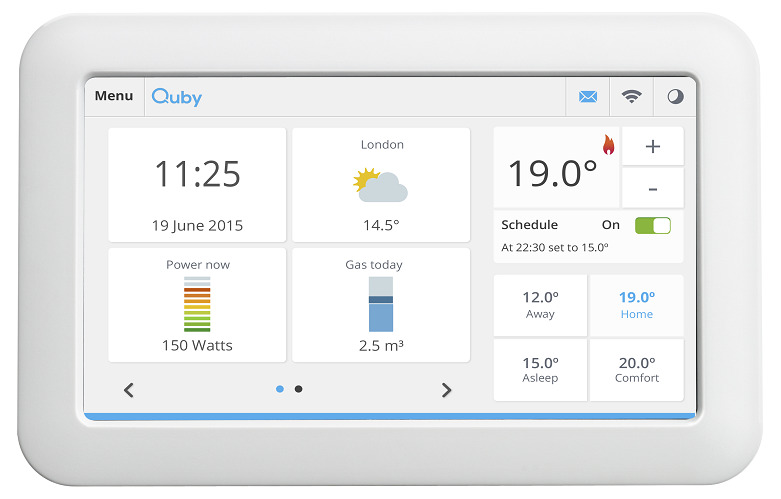Energy utilities are increasingly diversifying their business models and transitioning towards service companies, Quby’s chief commercial officer Ronald Carpentier has said.
The Dutch smart thermostat manufacturer is currently in discussions with a number of UK utilities about launching its product into the market early next year, and Carpentier said he had experienced how utilities are embracing different models.
Utilities famously have a low margin on the electricity or gas that they supply. Depending on the energy price, utilities in the UK tend to make between 2.5 and 5% on the energy they supply to consumers.
This, according to Carpentier, has caused utilities to look into increasing their offering and providing more services to consumers. One way this has been achieved is by offering energy management through the use of smart meters and other technologies.
Carpentier added that his company’s distribution deal with Eneco – the Dutch utility now offers the technology and energy management to customers of other utilities – had been successful in the Netherlands. Currently 175,000 customers have Quby thermostats in the country, and Eneco intends to increase this number to up to 1 million by the end of 2017.
For this service Eneco charges an upfront fee for the meter of around €200, a €40-50 installation fee and a monthly management charge of €2.50, which can be increased depending on the level of service the customer signs up for.
While Quby is eager to sign an exclusive contract with one utility in the UK, Carpentier said the company would also be open to signing non-exclusive contracts with a number of different utilities if it was deemed feasible for Quby to do so.
But in the UK there has been some debate over the smart meter rollout and its impact on consumers’ ability to switch provider. The government has been keen to promote energy switching as a way of keeping bills low, but some consumers have complained that by installing a smart meter they have been locked into lengthy contracts.
Joris Jonker, chief executive at Quby, said that the company is “perfectly fine with people switching” and that he saw it as a similar model to the smartphone market in that consumers are open to switch providers if the technology has been paid for.





